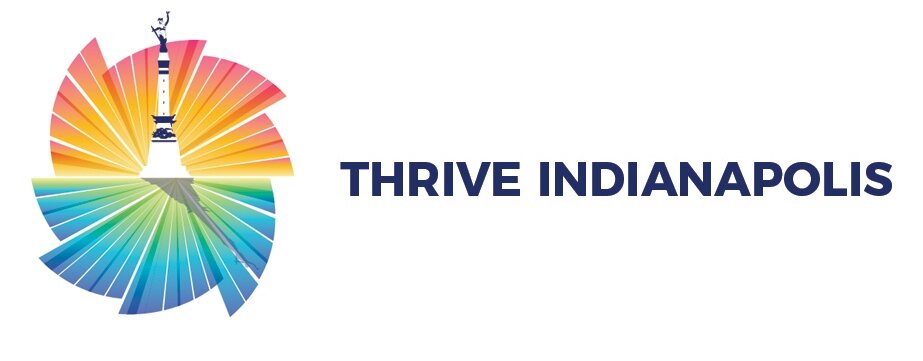eNERGY
Energy comes from clean, renewable sources that are affordable and accessible to all members of our community.
Energy: (EN:1) 20% of energy consumed in Indianapolis comes from renewable sources by 2025.
| Action | Status | |
|---|---|---|
| EN:1A | By 2020, the City of Indianapolis will transition 25% of municipal energy usage to renewable sources, while creating a pathway towards 100% renewable energy use by 2028. | Action Needed |
| EN:1B | In partnership with Indianapolis Power & Light Company (now AES Indiana), Citizens Energy Group (CEG) and other stakeholders, develop a roadmap to source 100% of the community's energy with renewables by 2050. | Action Needed |
| EN:1C | Deploy strategies that allow our community to overcome existing hurdles to solar energy installations, including education on and assistance with solar cooperatives and bulk purchasing contracts. Pilot one community solar program by 2025. | Complete |
transition to renewable energy
AES Indiana is the electric utility for Indianapolis. The Office of Sustainability engages with AES Indiana on the mix of fuels that power the grid to which Indianapolis is connected. The goals in EN:1 push for more and more renewable energy to power Indianapolis over time until 100% renewable energy mix is achieved. The Office of Sustainability engages with AES Indiana on Integrated Resource Planning to advocate for these measures.
The below charts show the current AES Indiana grid mix and projections as a result of the most recent IRP engagements (2019 and 2022). For more information, please visit Power generation | AES Indiana.
MISO Cities and Communities Coalition
MISO Cities and Communities Coalition (MISOCCC) is a coalition of communities across the MISO (Midcontinent Independent System Operator) footprint. MISOCCC is facilitated by Great Plains Institute which coordinates collective action to further the individual goals of participating communities through engagement with MISO leadership, its staff and stakeholders, and other entities. Participating communities’ goals focus on clean energy, economic development, decarbonization, affordability, and grid reliability. MISOCCC facilitates peer-to-peer learning of its members, provides educational opportunities from industry experts, and forms partnerships and collaborations with similarly aligned interests. The Office of Sustainability represents the city’s interest within MISOCCC.
EN:1C - Low- and Moderate-Income Solar Pilot
A local public-nonprofit partnership aimed at bringing solar energy to low- and moderate-income residents completed 10 installations in six months of the pilot program. The program, which is part of the Bloomberg Philanthropies American Cities Climate Challenge, helps eligible homeowners go solar and make energy efficiency upgrades on their own homes free of charge. It is the first of its kind in the Midwest. Primary implementation partners include the City of Indianapolis and Solar United Neighbors (SUN) a national nonprofit that helps homeowners and small businesses install rooftop solar panels and works to protect the rights of solar owners.
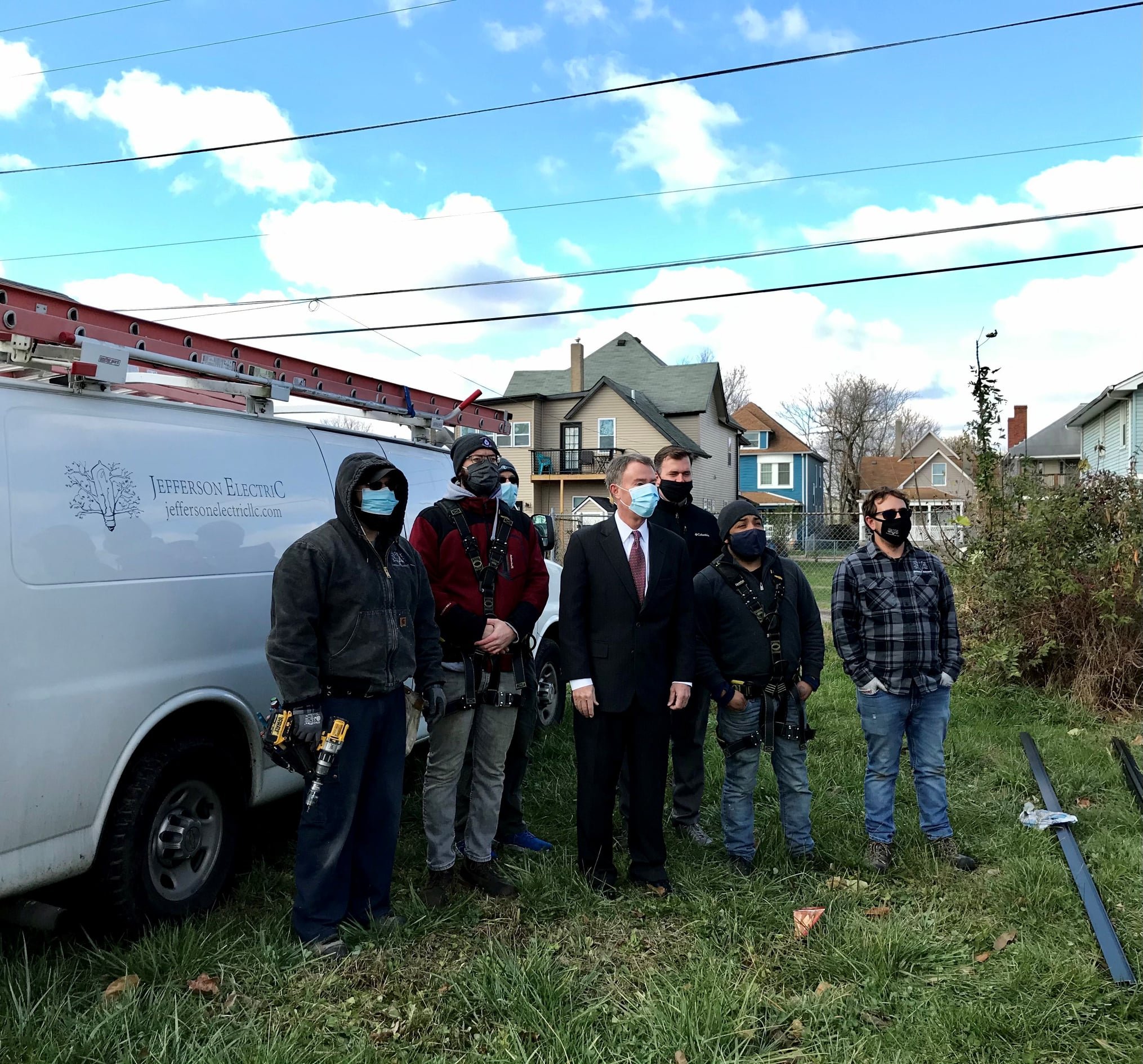
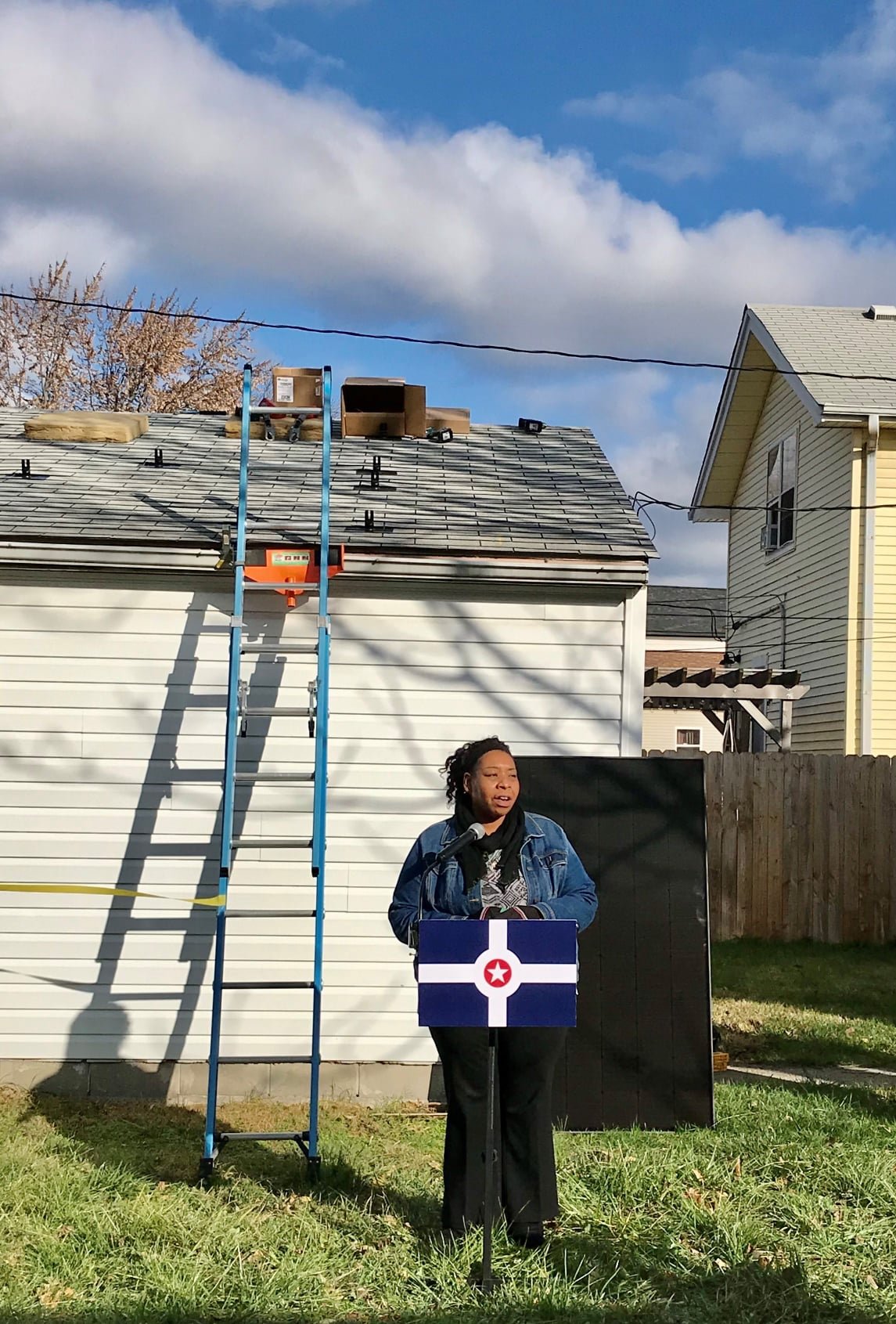
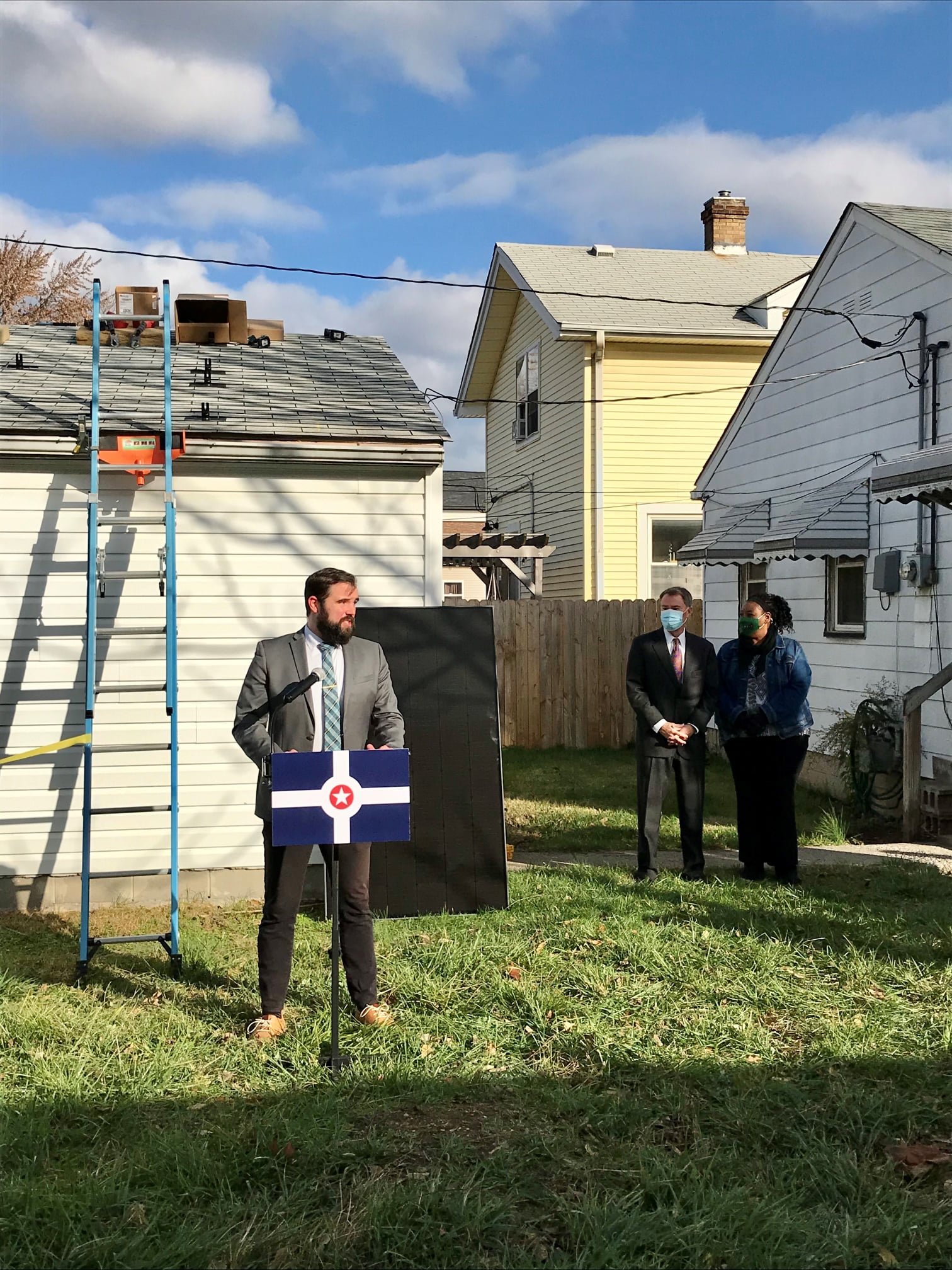
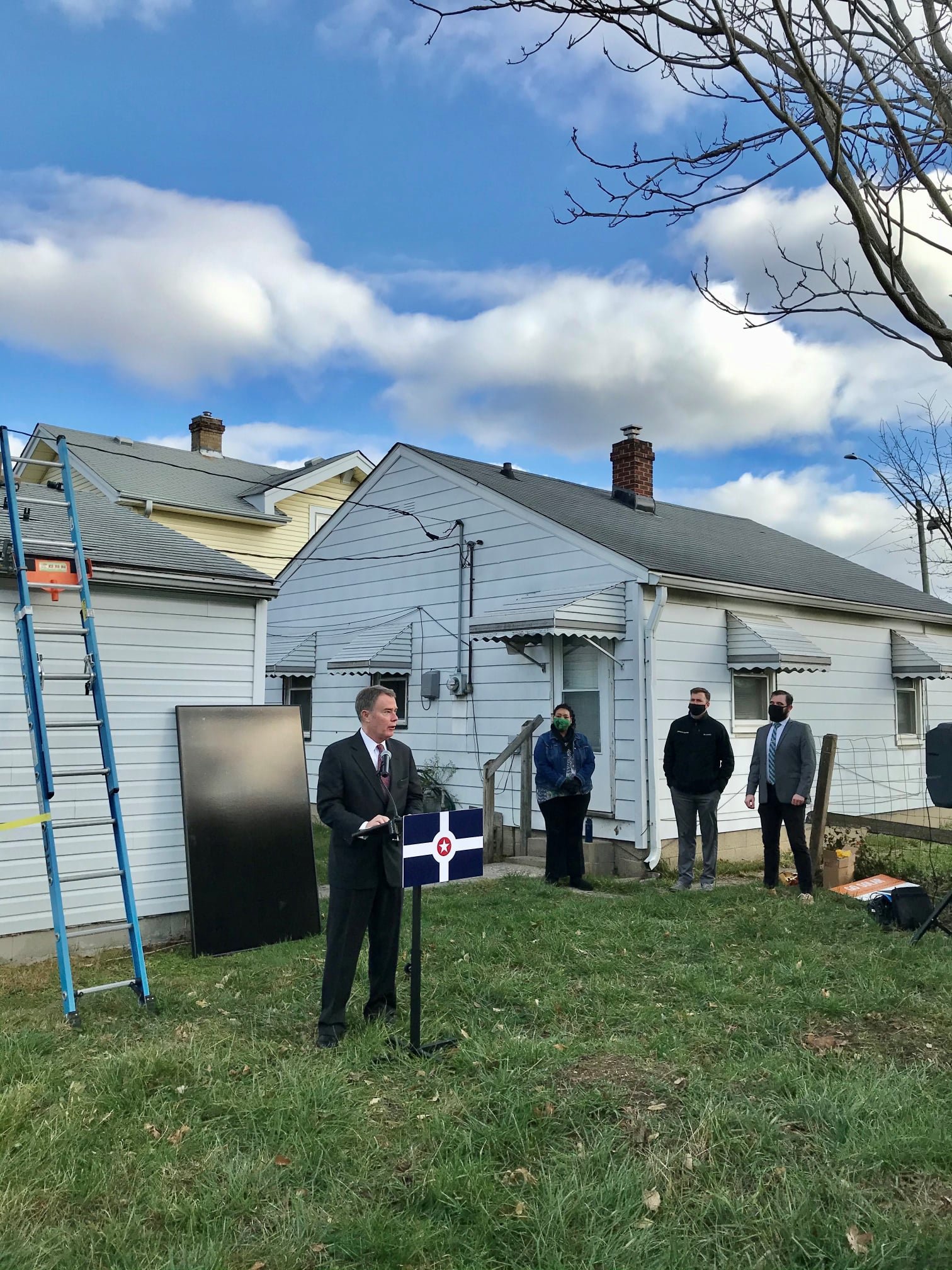
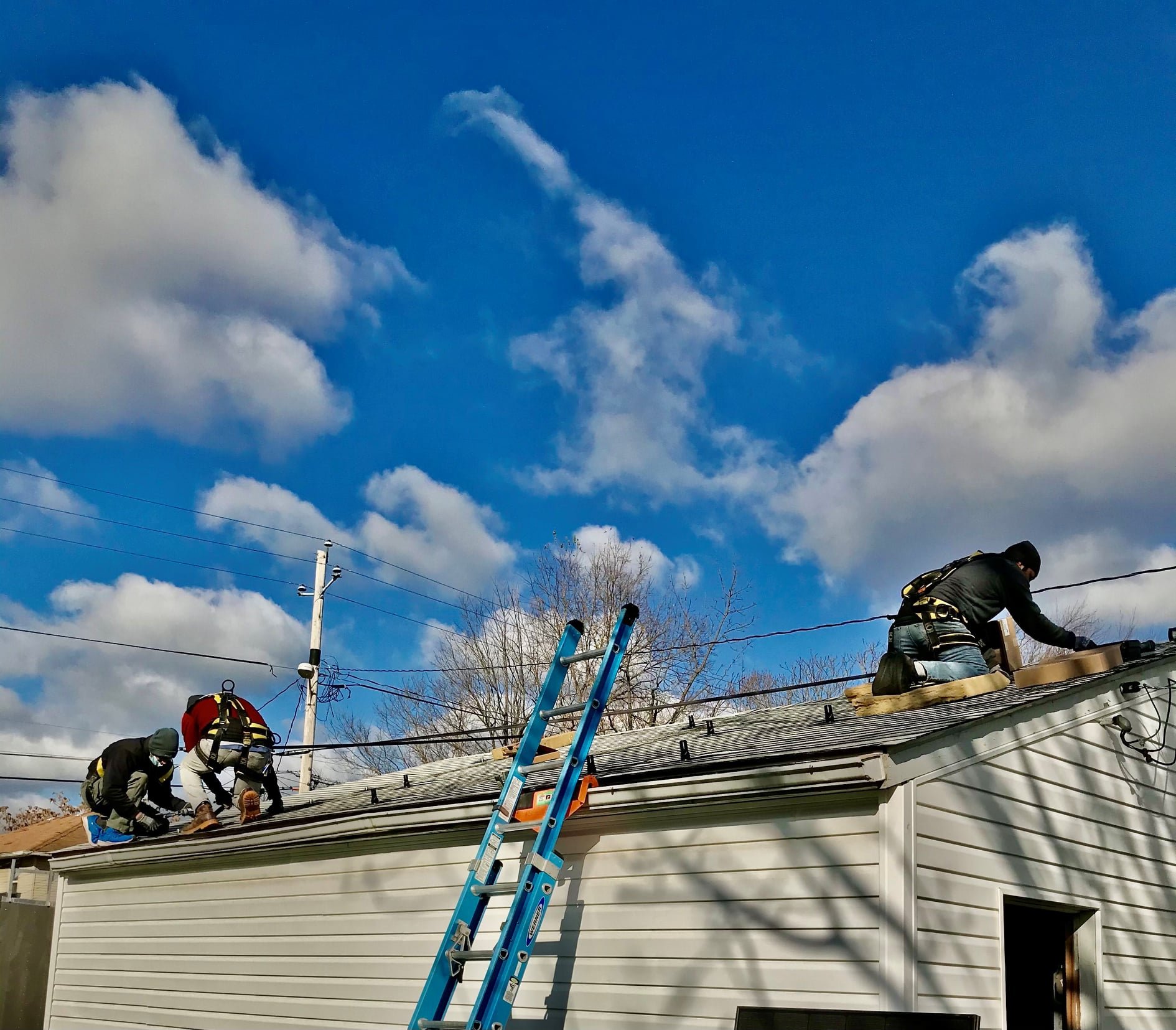
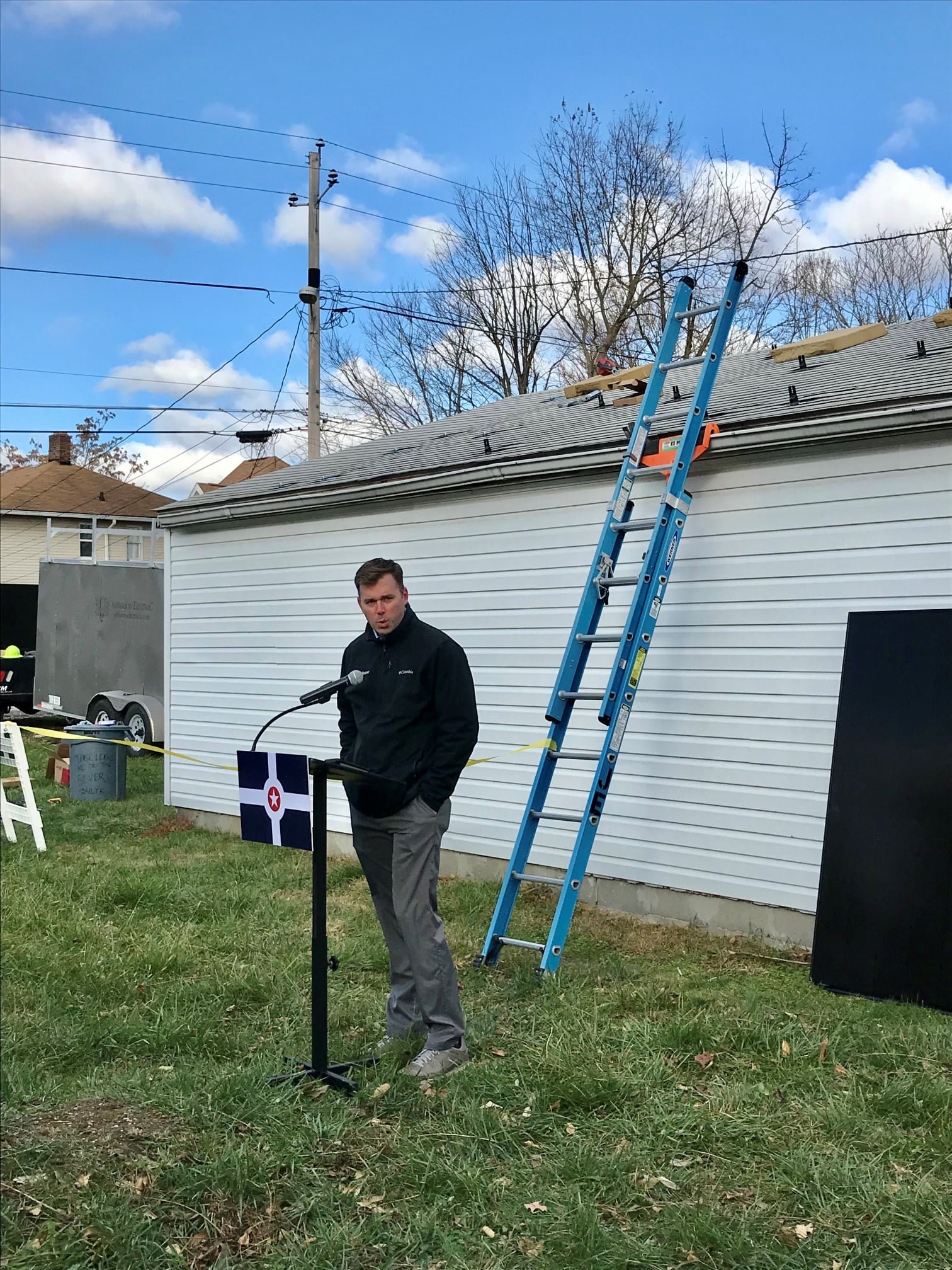
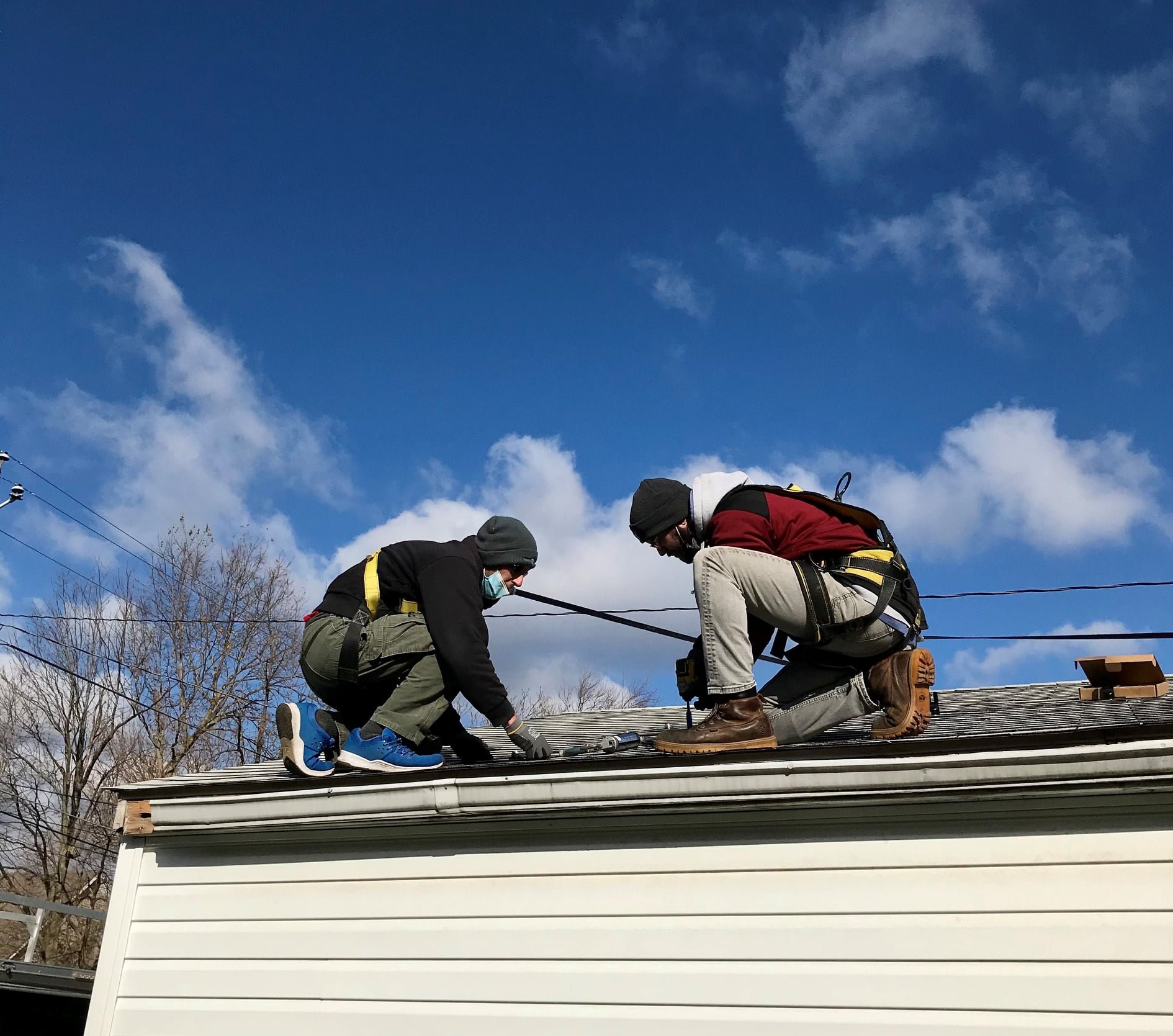
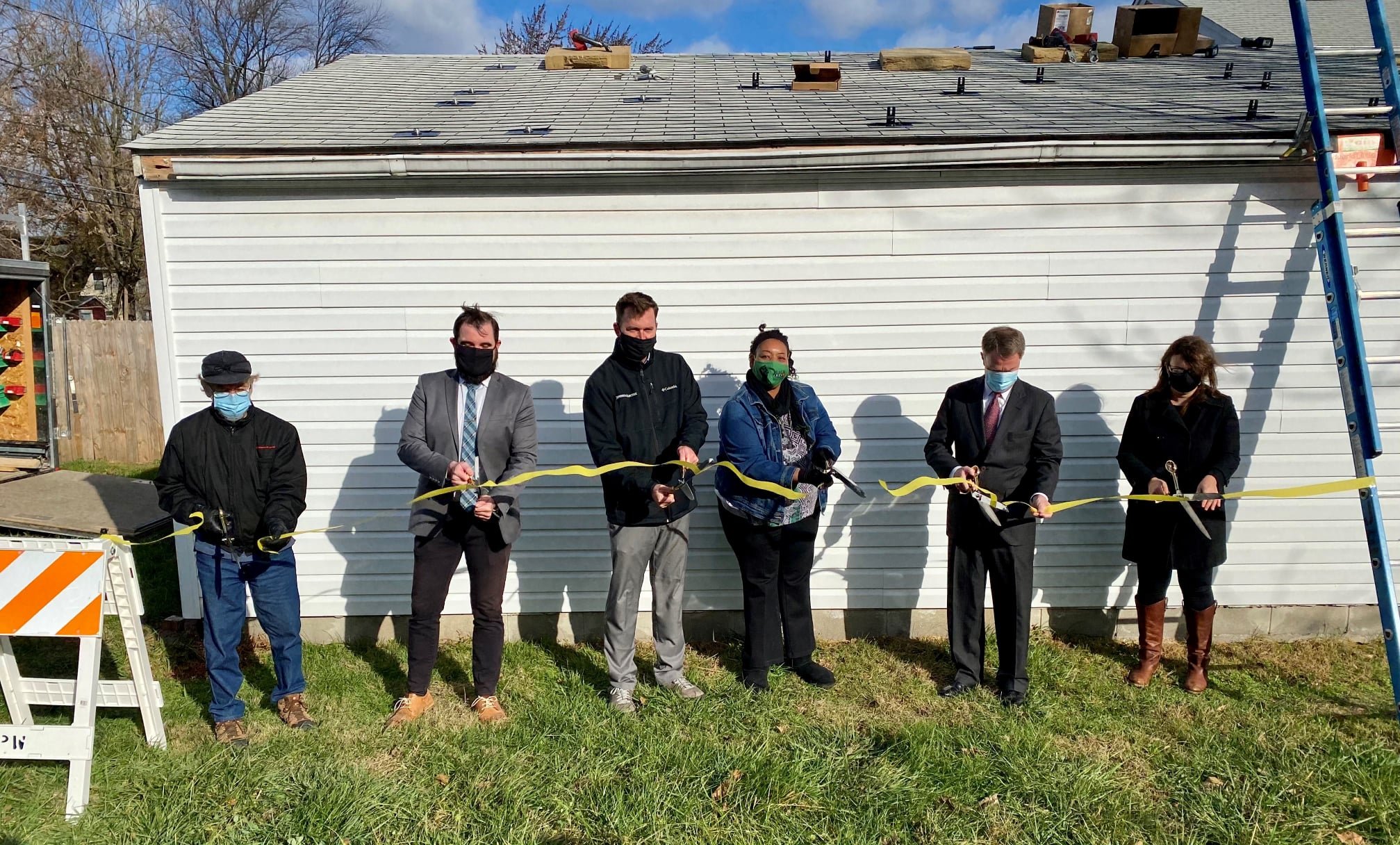
EN:1C - Complete
EN:1C - “Deploy strategies that allow our community to overcome existing hurdles to solar energy installations, including education on and assistance with solar cooperatives and bulk purchasing contracts. Pilot one community solar program by 2025.”
Part of the Bloomberg Philanthropies American Cities Climate Challenge, the project helps eligible Indianapolis homeowners go solar and make energy efficiency upgrades on their own homes free of charge. Additional community partners include Kheprw Institute, Indianapolis Neighborhood Housing Partnership, Solarize Indiana, Indiana State Conference of the NAACP, Hoosier Interfaith Power & Light, Earth Charter Indiana, Hoosier Environmental Council, Hoosier Electric Vehicle Association, and Sierra Club Hoosier Chapter.
Local press coverage here. For more information about SUN and local solar co-ops, please visit Solar United Neighbors.
Solar Energy
The sun is a powerful source of energy. Solar energy can be used to heat, cool, and light your homes and businesses.
By increasing solar energy generation, we can:
Create job opportunities
Improve public and environmental health
Conserve natural resources
Reduce the amount of income spent on utility bills
Resources on how you can use solar energy at home include:
Attend events, learn more, & join a solar co-op with Solar United Neighbors
Solar FAQs: AES Indiana
U.S. Department of Energy: Solar Energy Basics
U.S. Department of Energy: Harnessing Solar Energy at Home
U.S. Department of Energy (determine the solar unit type, size, and funding options for your location) Solar Rooftop Potential
U.S. Department of Energy: Homeowner’s Guide to the Federal Tax Credit for Solar Photovoltaics
Indiana Office of Energy Development: Solar Energy
National Renewable Energy Laboratory: Solar Technology Basics
Solar Energy Industries Association: Indiana Solar
Hoosier Environmental Council The Inflation Reduction Act: Indiana Energy Savings Guide
Climate Pollution Reduction Planning
The Indianapolis Metropolitan Planning Organization (MPO), and the Central Indiana Regional Development Association (CIRDA) are partnering with regional municipalities and stakeholders including the City of Indianapolis to develop the Central Indiana Environmental Action Plan.
CIRDA was awarded $1 million from the U.S. Environmental Protection Agency (EPA) to develop a regional plan for reducing GHG emissions and other harmful air pollutants. After the regional plan is complete in March 2024, CIRDA will compete for $4.6 billion in EPA grants to fund priority actions and associated projects.
For more information, please take the survey and visit Central Indiana Environmental Action Plan.
Energy: (EN:2) The energy grid is more resilient to shocks and stressors through the use of microgrids and increased efficiency
| Action | Status | |
|---|---|---|
| EN:2A | In partnership with IPL (now AES Indiana), pilot a microgrid or self-contained power system in an area of greatest need. | Action Needed |
| EN:2B | Pilot the city’s first energy resource center by 2020, acting as a resilience hub for the neighborhood. In partnership with local utilities, this center would offer information about available energy efficiency incentives and rebates. | Action Needed |
| EN:2C | Identify and eliminate barriers to engagement in IPL’s Income-Qualified Weatherization Program and other efficiency programs focused on low-income households. | In Progress |
EN:2C - AES Indiana Income-Qualified Weatherization Program
AES Indiana (formerly IPL) customers who meet income requirements can receive free weatherization services that can help decrease energy bills and increase comfort. Residents that meet eligibility requirements, will be connect with an energy advisor who will recommend additional weatherization improvements. Schedule a free Home Energy Assessment online or by calling 866-908-4915. For more information, please visit Weatherization Assistance | AES Indiana.
Community Action of Greater Indianapolis (CAGI) also performs weatherization services on the residences of eligible clients. Weatherization may involve such things as blowing insulation into attics and/or walls, sealing ductwork, or insulating crawl spaces. The principal objective is to remediate safety issues associated with household appliances (stoves, water heaters, and furnaces) and to improve the energy efficiency of homes which reduces the energy cost to the household. To learn more and see if you qualify, visit CAGI's website here.
AES INDIANA - WAYS TO SAVE
AES Indiana offers a variety of programs to help businesses and homeowners save on energy bills.
Ways to Save for Your Business
No-cost energy assessments / direct install (small business)
No-cost energy assessments / direct install (multi-family properties)
Indiana Energy Saver Program
The Indiana Energy Saver Program was launched in May of 2025 by the Indiana Office of Energy Development to provide Hoosiers with utility bill savings while enhancing home comfort and energy efficiency throughout the state.
Hoosiers can apply now through the program's online portal to begin the eligibility review process. Those eligible will receive a no-cost home energy audit to identify potential improvements. Energy audits are expected to begin in the summer of 2025.
The Indiana Energy Saver Program will provide cost savings in the form of an upfront discount on eligible products installed by qualified contractors. There are two branches to the Indiana Energy Saver Program:
Home Efficiency Rebate (HOMES)
The Home Efficiency Rebate (HOMES) provides cost savings to all Hoosiers, including single-family and multifamily residents, on whole-home retrofits achieving a minimum of 20% energy savings. Eligible upgrades include:
ENERGY STAR-certified heating and cooling
ENERGY STAR-certified water heaters
Insulation
Air sealing
Duct sealing
Appliances
Lighting
Home Appliance Rebate (HEAR)
The Home Appliance Rebate (HEAR) provides additional cost savings to low- and moderate-income households earning less than 150% of the Area Median Income in single-family or multifamily residential units for eligible upgrades including:
Heat pump water heaters
Heat pump HVAC systems
Heat pump clothes dryers
Electric stove, cooktop, range, or oven
Electrical system enhancements (like service load centers/panels and electrical wiring)
